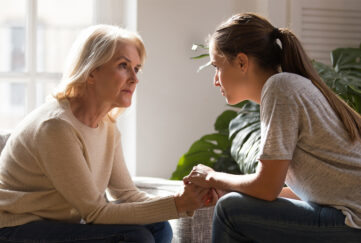Boost Your Energy This Winter

According to a new winter energy survey commissioned by wellness brand Healthspan, almost half of us feel drained of energy from December onwards. But winter doesn’t have to be the season of weariness, fatigue and lethargy!
Coenzyme Q10 is a natural substance which can boost energy levels. Often described as the body’s spark plug, coenzyme Q10 provides cells with energy, helping them to fire on all cylinders! As coenzyme Q10 levels decline with age, if you’re tired all the time, try adding more meat or seafood, which both contain small amounts of this vital nutrient, to your diet or taking a supplement containing ubiquinol, the easily absorbed form of coenzyme Q10. Healthspan Ubiquinol capsules (£34.95) help improve low energy levels and also contain vitamin B1, which converts food into energy.
Topping up vitamin D levels can also help relieve winter fatigue. “Low levels of vitamin D have been linked to fatigue and disrupted, poor quality sleep,” says Dr Sarah Brewer, Healthspan Medical Director. “We obtain most of our vitamin D from sunlight so, with the longer winter nights, many people’s reserves slump to an all-time low at this time of year,” continues Dr Brewer, who suggests taking Healthspan Vitamin D3 50 Plus Peppermint Oral Spray (£6.95) daily during winter.
To boost flagging energy levels, Nutritional Therapist Alison Cullen recommends drinking lots of water. “In the colder months, we often forget to top up our water intake because we’re drawn to hot chocolate and warming teas,” says Alison. “Good hydration is vital for concentration and focus so swap to warm water and you’ll feel physically more energised and less mentally drained.”
Alison also recommends eating leafy green vegetables and snacking on nuts and dried fruit to increase your body‘s store of energy-boosting magnesium. “For an instant energy lift, try A. Vogel Balance Mineral Drink (£6.99),” suggests Alison. “Combining magnesium, zinc, vitamin D, potassium and calcium, Balance Mineral Drink mixes into water or juice for an extra nutritious hit.”
Perhaps one of the most obvious ways of boosting your energy levels is to get more sleep – but this can be easier said than done. “Winter can cause havoc with sleep,” admits Rob Hobson, Registered Nutritionist and author of ‘The Art of Sleeping’. “Establishing a set pattern of sleep is the most effective way of overcoming the fatigue associated with sleep deprivation.
“Enforce a curfew on electrical equipment by avoiding laptops and phones an hour before bed. The blue light they emit inhibits the production of melatonin – the hormone that regulates sleep. Create a sleep oasis by decluttering your bedroom, investing in breathable bed linen, installing ambient lighting and scenting your room with lavender. And eat a light, carbohydrate-rich meal a couple of hours before you hit the hay.”
Healthspan’s winter energy survey showed that 30% of Brits like to recharge their batteries with a daytime nap. However, although experts agree that napping may help alleviate the symptoms of sleep deprivation, including low energy levels, timing is key.
“As little as 10 minutes can be enough to take the edge off fatigue,” reveals Rob. “If you’ve slept really badly, you may need a little longer but set your alarm so you snooze for no more than 30 minutes. Any longer and you’ll slip into a deep sleep and wake up feeling groggy.”
To gently coax your body clock into its energy-boosting winter settings, leading psychologist Dr Meg Arroll recommends spending time outside. “Get as much natural light as you can,” says Dr Arroll. “Even if it’s a bit grey outside, try to spend at least half an hour outdoors every morning. This will help regulate serotonin, which increases feelings of wellbeing, and melatonin.”
It’s not just your body that can suffer from low energy levels in the winter months. Your mind can feel equally sluggish in the cold, dark days of winter. “Give your mind a mental ice blast by escaping from stuffy, over-heated rooms that cause daytime sleepiness and taking a brisk walk in the cold air,” says Dr Arroll. “You’ll feel invigorated and ready to power through the rest of the day.”
Don’t Be SAD
Low energy levels and fatigue can be signs of seasonal affective disorder (SAS). If you think you may have SAD, your GP will be able to assess your symptoms and if required, may prescribe medication or refer you for specialist treatment.








